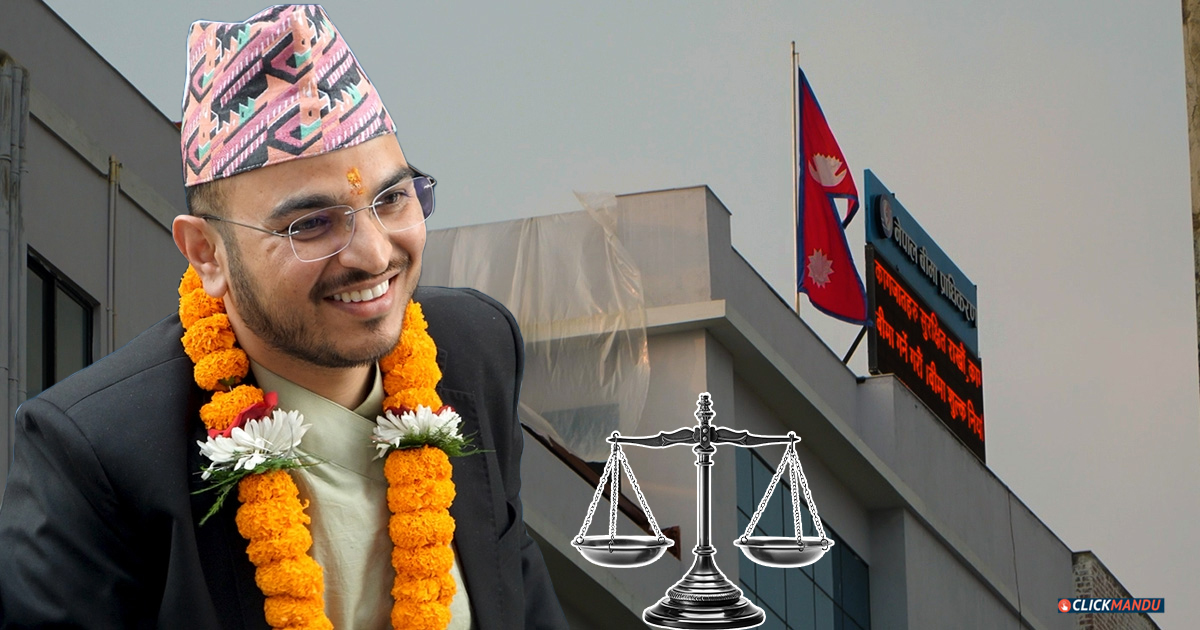Kathmandu: When the government of Nepal abruptly suspended the chairperson of its Insurance Authority earlier this week, citing concerns over his conduct and performance, the decision drew swift and serious backlash—not just from legal experts, but also from within the ruling political coalition itself.
Sharad Ojha, a relatively recent appointee and a key figure backed by the Nepali Congress party, was relieved of his duties on Monday after the Council of Ministers formed an official investigation committee. The government invoked provisions in the Insurance Act of 2022 to initiate the probe and, under Clause 12(3), Ojha was automatically suspended.
Yet critics argue that due process was not followed, and that the government acted with political motivations rather than legitimate administrative concerns.
“Even a person sentenced to death is asked about their last wishes,” said one senior advocate, referencing a foundational principle of justice. “Here, no explanation was even sought.”
A suspiciously swift decision
According to a dispatch from the Financial Sector Management and Institution Coordination Division under the Ministry of Finance, the suspension stems from an inquiry into Ojha’s “conduct, work performance, and fulfillment of duties.” However, observers have noted that no documented misconduct or public complaints have been filed against him. On the contrary, in the short time since taking office, Ojha has initiated several reforms to improve transparency and accountability in the insurance sector.
Under his leadership, the Authority began publishing a monthly bulletin called Bima Pratibimba (Reflection on Insurance), created a special bench to resolve policyholder grievances, and enforced on-site supervision to address fraudulent practices like inflated cashback schemes. He also pushed for enhanced staffing and internal restructuring to improve operational capacity.
Despite these measures, a committee was formed without giving him a chance to clarify or respond. “There are dozens of precedents from the Supreme Court of Nepal affirming the right to explain oneself before any punitive action is taken,” another legal expert told Clickmandu.
Legal and Constitutional fault lines
The controversy centres on an apparent tension between the letter of the law and its judicial interpretation. The Insurance Act does not require that an explanation be sought before forming an investigation committee or suspending a chairperson. Nevertheless, legal analysts argue that the constitutional right to a fair hearing should still apply.
The case is drawing comparisons to previous high-profile suspensions, including that of former Nepal Rastra Bank Governor Maha Prasad Adhikari, who was also suspended without explanation but was later reinstated by court order.
“Even if the law is silent, the judiciary has repeatedly said that a right to respond must be offered before any action is taken,” a constitutional lawyer explained.
The current probe into Ojha comes even as a separate writ petition challenging his qualifications is pending before the Supreme Court. The Commission for the Investigation of Abuse of Authority (CIAA) has also been reviewing documents related to his appointment. Thus far, neither the court nor the anti-graft body has found conclusive grounds for removal.
Behind the curtain: A political undercurrent
The political context behind Ojha’s removal adds to the intrigue. His appointment in March 2025 was championed by senior leaders in the Nepali Congress, particularly party president Sher Bahadur Deuba. Reports at the time identified Ojha as a close associate of Deuba’s family.
Some members of the ruling coalition now believe that the move to suspend Ojha was orchestrated by Prime Minister KP Sharma Oli’s UML faction, in an attempt to undercut Congress’s influence within regulatory institutions. According to internal sources, Ojha may only be the first target. The next could be Governor Bishwanath Paudel of the Nepal Rastra Bank, who also faces legal scrutiny over his qualifications.
“This is not just administrative maneuvering—it’s political chess,” one senior Congress official said. “The prime minister is attempting to weaken our institutional foothold as the government nears the end of its term.”
As elections loom within the next year, tensions between the UML and Congress are rising. While the coalition partners share executive power, the relationship has been marred by mistrust and competition. Congress insiders allege that the UML is undermining figures linked to their party under the guise of legal probes.
Questions about qualification
At the heart of the legal argument is whether Ojha met the qualification criteria outlined in the Insurance Act. The law stipulates that a chairperson must hold at least a postgraduate degree in a relevant field—such as insurance, finance, law, statistics, or management—and possess five years of senior management experience in the same area.
While Ojha submitted documentation showing senior managerial experience in various companies, critics argue this was not within the insurance sector specifically. A Supreme Court bench previously declined to issue an interim order against his appointment, suggesting that—at least preliminarily—his credentials were not inadequate.
The final interpretation of whether his work experience qualifies as “relevant” under the law remains pending with the full bench of the court.
Legal experts note that Nepal’s laws vary in how they define relevance and work experience. In some statutes, such as the Nepal Rastra Bank Act and the Securities Act, the required sector is explicitly mentioned. In the Insurance Act, the language is broader, allowing interpretation to play a crucial role.
Can Ojha be reinstated?
If the government removes Ojha based on the investigation committee’s findings, legal experts believe reinstatement could be likely. “There’s a strong chance the court would issue a stay order,” said one corporate lawyer. “He was denied the right to clarify, and no clear evidence has been made public. History shows that politically motivated suspensions often don’t stand in court.”
The lawyer also emphasized that the committee’s role is to assess conduct and efficiency—not determine qualifications, which is the jurisdiction of the court.
“You cannot assess a person’s competency within just four months,” the lawyer added. “And you certainly cannot draw conclusions on conduct or ethics without thorough investigation.”
If Ojha is removed, his case may set yet another precedent in Nepal’s growing body of jurisprudence on administrative fairness, political interference, and legal safeguards for public officials.
Politically, Ojha’s appointment was backed by the ruling coalition of the Nepali Congress and the UML. It is believed that he was nominated through the influence of Congress President Sher Bahadur Deuba, and there were media reports linking Ojha as a close associate of Deuba’s family.
Some Congress leaders have expressed dissatisfaction with the government’s move. They accuse Prime Minister KP Sharma Oli of trying to oust officials close to Congress under various pretexts, possibly to replace them with his own loyalists as the current coalition nears its final year before elections. There is also speculation that after Ojha, the next target could be Nepal Rastra Bank Governor Prof. Dr. Bishwanath Paudel, who also faces a court case regarding his eligibility.
A senior Congress official stated, “This appears to be a ploy to discredit promising young leaders placed in positions of authority through the Congress-UML coalition. We suspect a hidden agenda behind Ojha’s removal while the court and CIAA are still investigating his qualifications.”



Comment Here